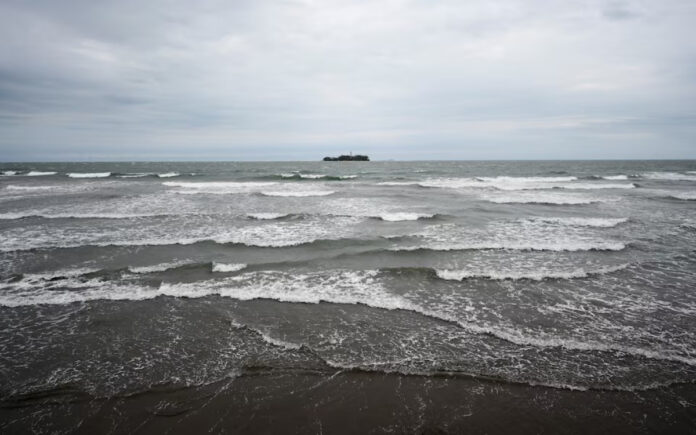Washington: The Trump administration released a long-anticipated environmental assessment on Tuesday, concluding that vessel strikes linked to oil and gas drilling in the Gulf of Mexico pose a significant threat to the endangered Rice’s whale population.
This assessment, formally known as a biological opinion, outlines protections for endangered and threatened marine species impacted by oil and gas operations in the Gulf, an area President Donald Trump has renamed the Gulf of America.
According to the analysis, the Rice’s whale population in the Gulf numbers approximately 51 individuals. To safeguard these whales, the report imposes vessel speed limits and mandates that ships maintain a minimum distance of 500 meters (547 yards) from any sighted Rice’s whale.
The National Marine Fisheries Service (NMFS) was compelled by a federal judge last year to revise its earlier evaluation, which had been criticized for failing to sufficiently address the risks posed to marine species by oil spills and vessel collisions.
Industry representatives from groups such as the American Petroleum Institute (API) and the National Ocean Industries Association (NOIA) had warned that failure to meet the judge’s deadline of May 21 for producing an updated assessment could lead to a halt in crucial energy activities.
Also Read | Musk Pulls Back on GOP Funding, Cites Focus on Tesla and SpaceX
While both API and NOIA acknowledged the release of the new assessment, they expressed concern over the finding that oil and gas activities threaten the Rice’s whale population.
“As we continue reviewing the new opinion, we are concerned by the inclusion of a jeopardy finding for the Rice’s whale,” said NOIA President Erik Milito. “That determination appears inconsistent with the best available science and triggers unnecessary regulatory uncertainty.”
Also Read | Canada Emphasizes G7 Finance Ministers’ Focus on Restoring Global Stability and Growth
Meanwhile, environmental advocates who initiated legal action to protect the Rice’s whale criticized the assessment for not going far enough.
“It’s just as inadequate for protecting rare marine species as the last biological opinion was,” stated Chris Eaton, an attorney with Earthjustice. “For Rice’s whales, it allows activities over the next 45 years that the Fisheries Service admits will kill nine whales and seriously injure three more.”



